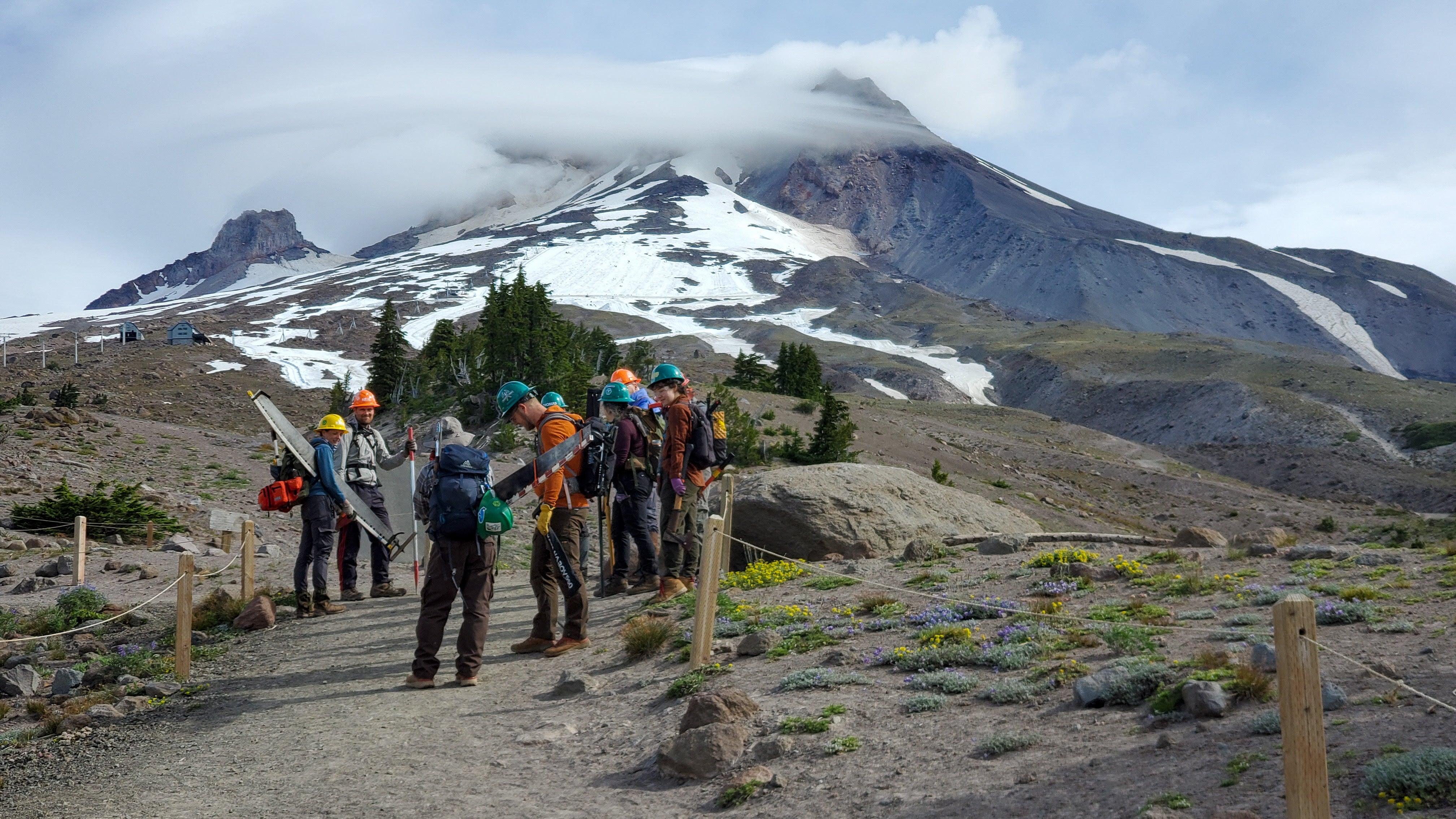A hiking trail in Mount Hood National Forest is an awful long way from the Capitol rotunda in Washington, D.C. But the federal government shutdown that began today has immediate consequences for all national forests and other national recreation sites in the state and region, including places like Multnomah Falls.
The shutdown began at 12:01 am Oct. 1 because Congress could not reach an agreement on funding.
The U.S. Forest Service manages 24.9 million acres of land in Oregon and Washington—think Mount Hood, the Columbia River Gorge National Scenic Area, the Deschutes National Forest, Malheur National Forest and more.
During the last government shutdown, which lasted 35 days in 2018 and 2019, President Donald Trump kept most national park locations accessible to the public, operating with skeleton crews. That appears to be the plan this time around too, according to Politico, though the exact strategy has not yet been confirmed by the feds. If the shutdown proceeds in the same way, visitors should expect hiking trails to be open but things like visitor centers to be closed.
That is the case today at Multnomah Falls, according to Chris Willis, general manager of Multnomah Falls Lodge. The interpretive center, which is run by Friends of Multnomah Falls, has closed, but the restaurant, the espresso and snack bars, and the gift shop are all still open because they are operated by concessionaires, Willis says.
“Multnomah Falls is public land, so you can certainly go and see the falls,” Willis says.
(Ditto for Timberline Lodge: It’s also a concession on public land and remains open. In general during the shutdown, it’s worth a call, or a thorough Google search, before heading out for outdoor adventure to see what amenities are open or closed.)
The nonprofit group Trailkeepers of Oregon has canceled volunteer work on federal land during the shutdown because its activities are considered “nonessential.” No federal employees will be available to authorize or coordinate TKO’s service work, such as clearing brush, repairing stairs, and maintaining trail surfaces. Steve Kruger, TKO’s executive director, wrote last week about how when park staff are not allowed to work, “conditions degrade further and recovery will be slow and costly.”
“A shutdown isn’t an abstract policy debate for those of us in the field,” Kruger said. “It is a real disruption to the protection of our lands, to the experience of millions of visitors, and to the well-being of the public servants who have committed their lives to this work.”

